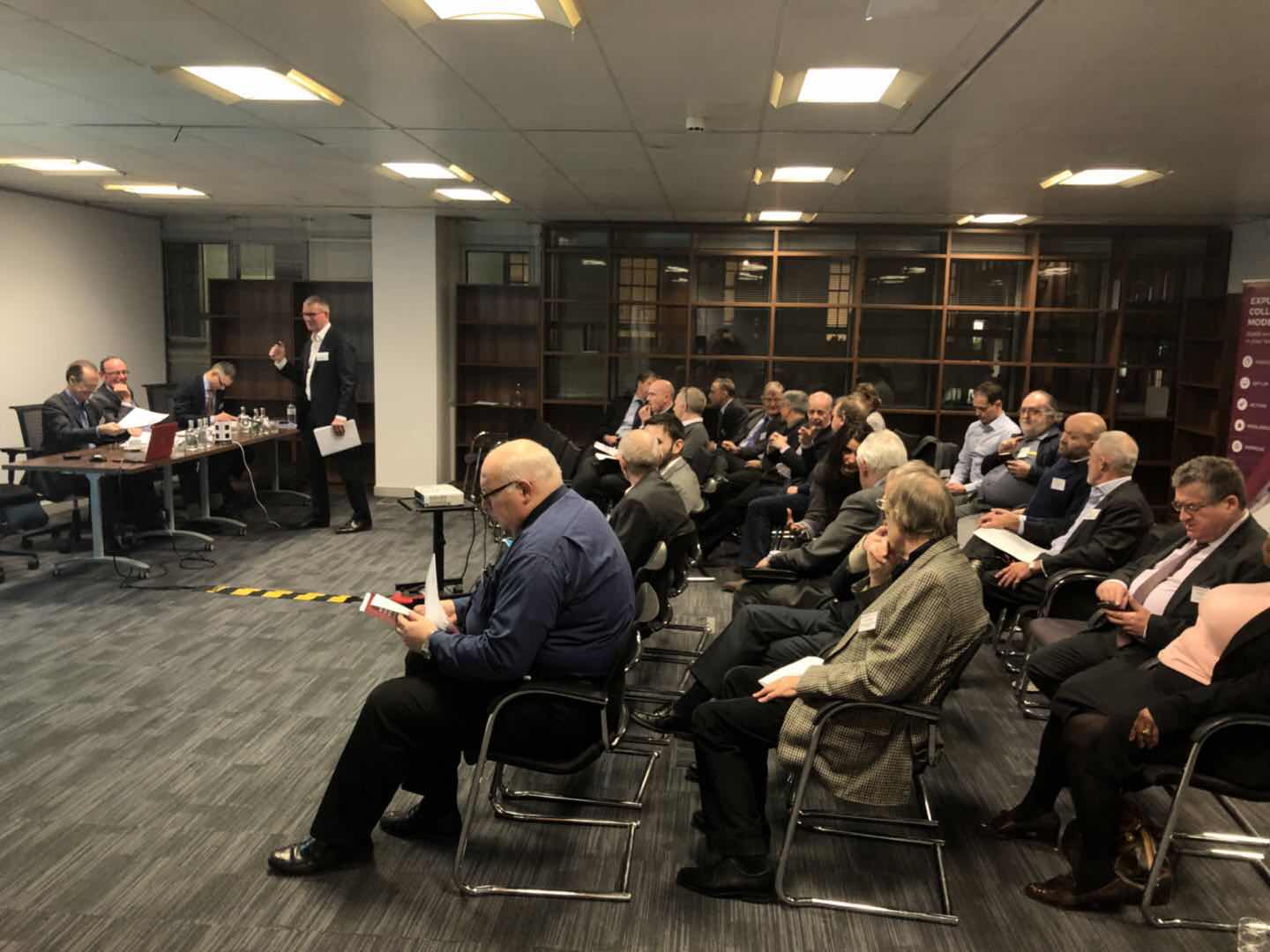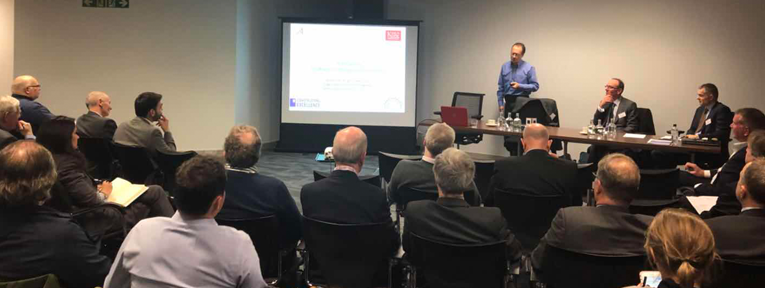A Case Study from Surrey Highways and Kier Services
The session was opened by David Mosey who provided a short explanation of the FAC1 Framework agreement. For those not yet familiar with FAC1, it provides a framework for organisations to enter into an agreement that will enable and support the award of a number of contracts whilst not itself being a project contract. The agreement anticipates a situation where a client wishes to set up a longer-term partnership or alliance and needs an overarching document that covers:
- Joint planning and risk management
- Improved consistent working practices
- Encourages learning to be passed from project to project
- Achieves improved value through collaborative working
David used an example from a roads maintenance agreement, involving Surrey County Council, Kier Services and a number of specialist subcontractors. The agreement used an early prototype of FAC1 to help Surrey Council generate savings of roughly 15% from the original tendered contract as well as a number of additional benefits.
The FAC1 agreement is only 18 months old but has already been picked up by a range of public and private organisations who are investing in development programmes.

Nigel Owers then explained the background to its new Alliance program. Kier had originally won a tender for a 6 year highways maintenance contract in 2011, which gave Surrey the option to extend by an additional four years. Having successfully delivered the initial term of the contract, the council agreed with Kier to extend the contract to 2021. The extended agreement is intended to deliver continue additional value and innovation through the supply chain through revised and collaborative arrangements. The strategic goals of the Alliance are:
- Increased collaboration between SCC, Kier and the supply chain
- Achieve the objectives of the Surrey Business Plan
- Find a further 2.5% saving
- Develop a sustainable supply chain through to 2021.
Nigel ran through the re-procurement process and explained how the Alliance agreement was implemented. A useful illustration is a summary of what the Alliance members have agreed to do:
- Hold Core Group meetings;
- Adopt and participate in early contractor involvement (“ECI”)
- Share and/or improve working practices for the benefit of Surrey and the Term Programme
- Attend other framework review meetings as required in order to achieve improved value
- Implement social value proposals
Measurement and feedback are important elements. For example, the agreement sets out four success measures:
- Performance Review
- Social Value
- ECI
- Alliance participation
Nigel closed by acknowledging that the Alliance was still in a learning phase and that the parties were each still getting used to the new arrangement. It was interesting to note that those individuals who were part of the previous alliance programme were apparently comfortable with the open dialogue that featured in the first Alliance meeting. Those who were new to the format were much less certain as to how to make the adjustment from a transactional set of behaviours to the collaborative mindset required as part of this alliance.
Keith Coleman then presented the Alliance process from his perspective. His role is Head of Contracts and Supply Management at Orbis, an organisation formed to provide procurement services to Brighton and Hove, East Sussex and Surrey Councils. Keith explained the drivers created by the huge funding gap that all local government bodies need to close. They are therefore continuing to explore mechanisms that will enable them to gain additional value by setting up collaborative arrangements with key suppliers. There is consequently is a shift, both within local and central government, away from short term lowest price bidding.
Keith talked about the progression of different relationships to deliver better value from a procurement perspective. These range from category management and strategic sourcing through to supplier relationship management. For many procurement teams the Alliancing framework is a significant stretch requiring a new mindset as well as new processes and procedures. He nevertheless envisaged an additional stage where major buyers such as local government might take the Alliancing process to encompass entire markets.
For example, Surrey currently deals with 400 separate care home providers. He asked the room whether it might be conceivable that an Alliance framework could be used to find greater value from such a dispersed network? Keith did not suggest any answers but left the room with a clear sense that given the right mindset and the appropriate toolkit, much more was possible.
